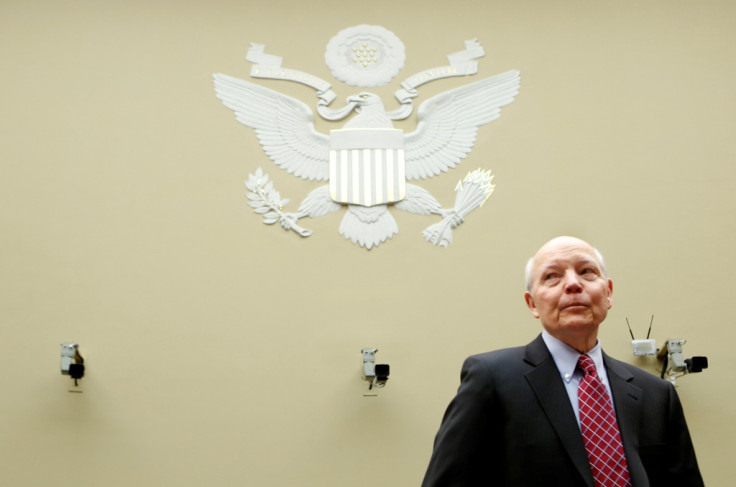IRS Chief John Koskinen Says Agency Cannot Stop Corporate Inversions

The US probably cannot take regulatory action to prevent companies from paying lower taxes through corporate deals that shift their tax residences to low-tax regimes outside the country, according to the head of the Internal Revenue Service (IRS).
US-based Pfizer's ongoing hostile attempt to take over UK drug maker AstraZeneca has renewed concerns about the aggressive tax avoidance strategies of large companies.
The British company is yet to accept the terms, but the so-called tax inversion under which the merged entity will have the UK as its tax domicile has created US tensions in Washington.
Pfizer and some 19 other companies are making or contemplating transactions that will move their legal addresses to other countries for tax purposes. Firms such as Chiquita Brands International and Omnicom, America's largest advertising firm, are looking to benefit from lower taxes elsewhere.
US lawmakers have been debating broader changes to the US tax code, to limit the so-called corporate tax inversions.
However, the prospect of legislation, expected within a few months, or regulation by the Treasury department could persuade companies to expedite deals.
"We've done, I think, probably all we can within the statute," IRS chief John Koskinen said on 30 April.
"We try to make sure people are within the bounds, but if they're within the bounds, if they play according to the rules, then they have a right to do that," he added.
Low-Tax Regimes
The low-tax regimes currently preferred by companies include Ireland, the Netherlands, Switzerland, Canada and Britain.
Ireland has a 12.5% rate. The UK's rate is 21% and will decline to 20% next year, with no tax on active businesses outside the country.
By comparison, the top US corporate rate is 35%. Companies also must pay US taxes when they send home foreign profits, after receiving credits for foreign taxes.
© Copyright IBTimes 2025. All rights reserved.






















